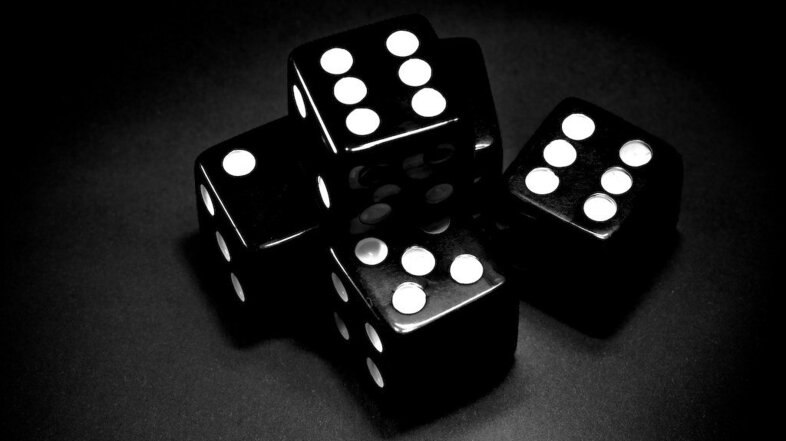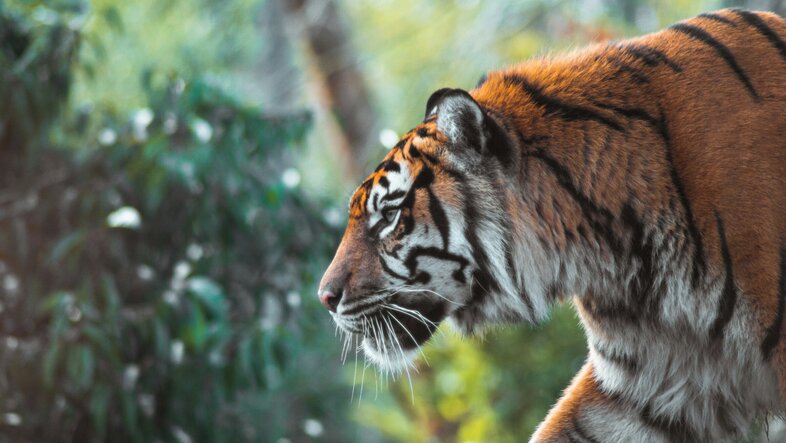Free by Nature: The Biological Roots of Free Will
“If only I had decided differently!" Everyone knows it: the nagging suspicion, often also the painful realisation, of having made the wrong decision. If I had studied medicine instead of philosophy, I could now afford to buy my own home instead of renting a place. If I had taken the train to work instead of the car, I would not have been involved in that terrible accident. If I had not made that biting comment, my partner would not have left me.
Such retrospective doubts about the correctness of past decisions presuppose that it would have been possible to decide differently. The criminal who has to answer for her actions in court may think that she had no other choice; but unless a medical report proves her mental incapacity, she will be punished for her deed.
The concept of alternative possibilities is also familiar with regard to future events. When you are pondering over an important decision, you naturally assume that you actually have a choice. You can decide to accept the job offer that would take you abroad; but you can also decide against it. If you were not free to want one or the other, why should you consider which alternative is the more desirable?
Save the date: Distinguished lecture and conference on free will
Anne Sophie Meincke is organising the interdisciplinary conference Free Will: New Perspectives from Philosophy and Neuroscience, which will take place at the Austrian Academy of Sciences (ÖAW) from 11 to 12 June 2025. The conference will be preceded by a distinguished lecture entitled "Can Biology Help Us Defend Free Will? An Emerging Debate in Philosophy and given by Alfred R. Mele (Florida State University, US) and Anne Sophie Meincke on 10 June 2025 as part of the Young Academy Distinguished Lecture Series.
Freedom of Will versus Freedom of Action
The philosophical problem of free will concerns the core of our decision-making competence and is not to be confused with the problem of freedom of action. The question is not about whether we are free to do what we want. Rather, it is about whether we are free to want what we do when we do what we want.
Imagine, for example, that you lack the financial means to move abroad where that attractive job is waiting for you. This unfortunate circumstance does not mean that you do not want the job. Quite the opposite. You may want the job so badly that you try to negotiate a relocation bonus with your employer-to-be to overcome the obstacle to the fulfilment of your wish. Regarding your freedom of will, the relevant question is: given the circumstances, could you want otherwise?
Universal Determinism?
Traditionally, the question of whether our will is free has been discussed against the background of the doctrine of universal determinism, which gained popularity in the 17th and 18th century through the works of René Descartes, Isaac Newton, Pierre-Simon Laplace and other mechanists and which is still endorsed by many natural scientists and philosophers. According to universal determinism, everything that happens is determined – in the sense of “necessitated” – by the laws of nature and the initial conditions of the universe. There is only exactly one possible future state of the universe at any given time.
If universal determinism is true, then at best we are free to act according to our will, given favourable circumstances and the absence of coercion. For example, you may be free to take that dream job abroad, because your financial situation allows it. But the fact that you want that job was already determined before you were born, namely at the beginning of the universe.
In a deterministic universe, freedom of will can only be an illusion. To avoid this conclusion, we must reject the doctrine of universal determinism. And we have some good independent reasons for doing so. The most plausible – and now widely accepted – interpretation of quantum mechanics is that it is indeterministic. How, say, an electron will behave cannot be predicted accurately; only a range of probabilities can be devised.
Indeterminism Causes a New Problem
If reality is indeterministic at its presumably most fundamental level, we may expect that other parts of the universe are indeterministic too. Indeterminism may scale up to higher levels, thus creating a space of possibility for free will. Indeed, there is evidence for quantum effects not only in key biological processes, such as photosynthesis, respiration, vision and olfaction but also in neural processes involved in decision-making.
Unfortunately, this raises a new problem: if our volitions are not the necessary result of causal chains governed by natural laws, how can we then explain them? Are volitions and the decisions that flow from them products of mere chance? How, then, can we reasonably claim to be in control of our actions?
We are thus faced with a puzzling dilemma: freedom of will seems to be ruled out by both determinism and indeterminism. It presents itself as “a mystery” (as the philosopher Peter van Inwagen put it), as something that exists even though it seems impossible.
Help from Biology
Dilemmas are invitations to make a fresh start. In the case of the free will dilemma, this means reflecting on fundamental ontological assumptions about the structure of the universe and the place of humans in it. My suggestion is to seek help from biology in this regard. Why?
Universal determinism is tied up with a believed explanatory primacy of physics over other natural sciences. However, humans are biological beings – organisms as studied in biology. More specifically, as emphasised by a growing number of philosophers of biology, organisms are biological agents: They have to interact in an environment with both other organisms and non-biological things in order to survive in this environment.
The capacity for action that humans and many other – perhaps even all – animals possess, is essentially a biological function: a means of ensuring their own continued existence. Enabled by fundamental biological processes, the most fundamental of which is metabolism, the ability to act itself contributes significantly to the maintenance of these processes. After all, for there to be something to metabolise, action must be taken: The tiger goes hunting for prey, the human being goes to the fridge or to the restaurant.
Between Necessity and Chance
From a biological point of view, it makes little sense to assume that the laws of nature and the initial conditions of the universe determine whether and how each individual animal on Earth manages to survive. Rather, survival is a question of the adaptation of a species to its habitat and the adaptive behaviour of biological individuals. In fact, it is very much a question of how smart organisms are when it comes to acting: whether they choose the right options over the wrong ones.
This entails that what biological agents want and how they behave is by no means random. Both environmental factors and individual learning histories impose constraints on the volitions of biological agents, not to mention the constraints imposed by the species-specific and individual physical constitution of these agents. Therefore, in certain types of situations, certain types of actions can be expected from certain types of organisms, even if individual decisions could have turned out differently. Organisms are neither deterministic machines nor random processes – and so their actions occur neither with inevitable necessity nor out of the blue. The truth, as so often, lies in the middle.
Do Not Be Afraid of Indeterminism
Choosing among genuine possibilities for action is essential to being a biological agent, human or non-human. This is not to deny that human free will differs from animal free will in important ways. Certainly, I have more options for willing than my pet dog, including a greater variety of action types that I can choose to pursue. I also have greater control over at least a large part of my volitions because I can reflect on them and, perhaps, intervene and change them.
Free will, thus, comes in degrees. Generally speaking, the further away a behaviour is from necessity, that is, the more it is under the control of the agent as opposed to the environment, the freer it is and the more it can also count as an action. This correlates with a continuum of increasing perceptual and cognitive skills. Whereas action choices are mostly affectively driven in primitive organisms, more sophisticated cognitive representations are involved in higher organisms . These allow for deliberation and reflection in the light of perceptual information and memory.
Biology can teach us that we do not need to fear indeterminism. Indeterminism is not identical with chaos, but allows for different degrees and kinds of order and, thereby, of free will. On this basis, we can venture the hypothesis that free will is an aspect of biological agency and cannot be separated from it. Human will is free by nature and so, to some lesser extent, may be the will of non-human organisms.
Convinced that empirical sciences, such as biology, can constructively inform philosophical theorising and vice versa, she strives to foster interdisciplinary exchange through her work. Meincke is an elected member of the Young Academy of the Austrian Academy of Sciences (ÖAW).
- Personal website of Anne Sophie Meincke
- Department of Philosophy
- Video [in German]: Anne Sophie Meincke at a panel discussion on the semester question 2022: What shapes human behaviour?
- Video [in German]: Anne Sophie Meincke at a panel discussion with the topic "Animals and langugae" at the opening of the European Literature Days 2023 "Animals and other humans"
- Article [in German]: Anne Sophie Meincke on the biological roots of free will on derstandard.at
- Article [in German] by Anne Sophie Meincke on derstandard.at: Can animals think?

